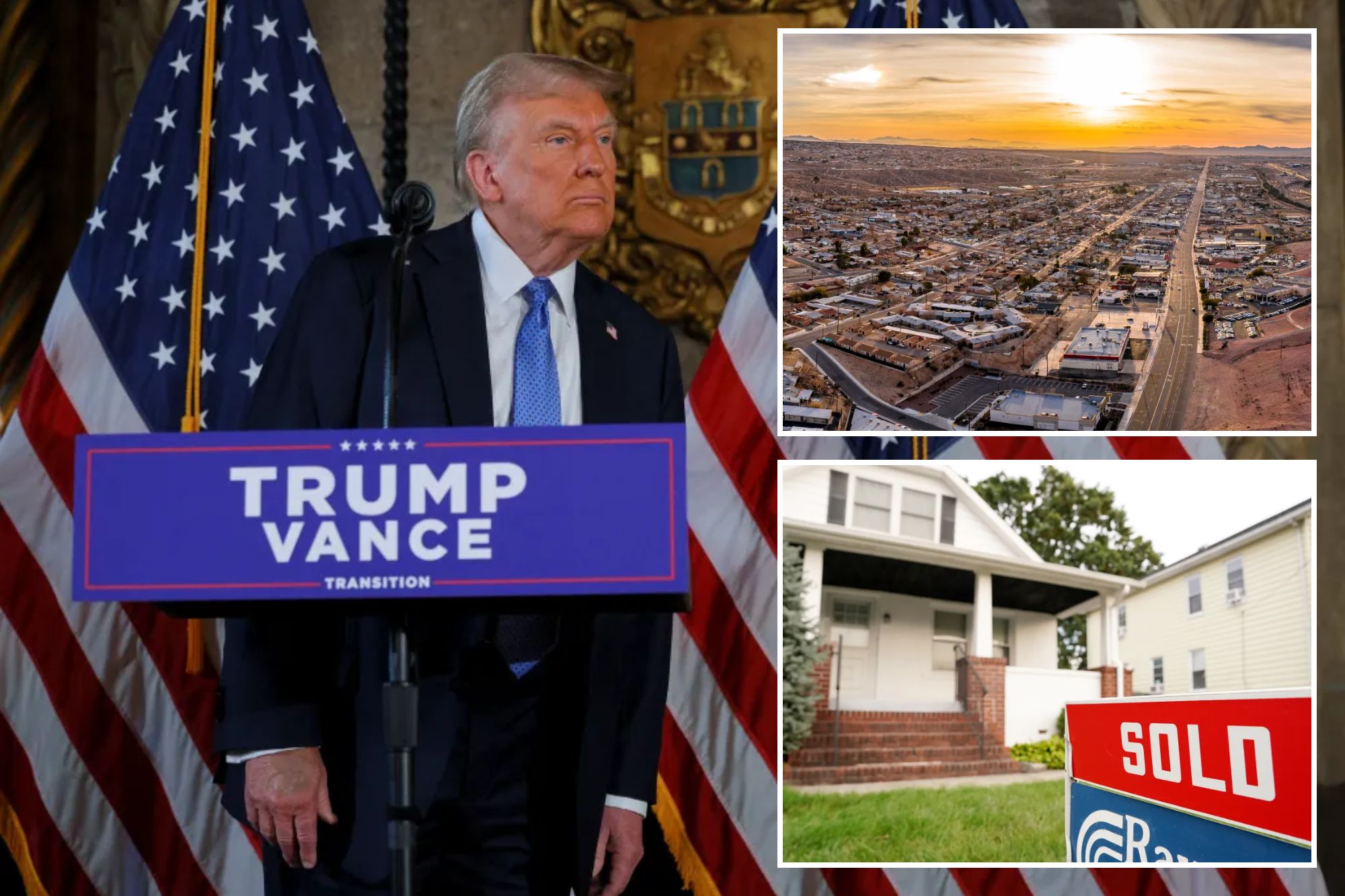
Could your vote in the last presidential election affect the value of your home?
Perhaps, according to an academic study published last year in the Journal of Real Estate Research.
Although it was not the primary focus of their study, the authors observed an intriguing historical trend: Counties that switched their votes from the incumbent party candidate to the non-presidential candidate, who then went on to win the election, saw superior price performance. housing compared to the next four years.
For the last election, this scenario applies to counties that voted for Democrat Joe Biden in 2020, but then flipped in 2024 to favor Republican Donald Trump, who won the election.
If the historical trend is any guide, those counties may now see higher average home price growth during Trump’s second term in the White House than counties that voted for Biden in 2020 and stayed Democratic in 2024 .
Counties that changed their presidential vote from 2020 to 2024
A Realtor.com® analysis of election data has identified at least 84 counties across the country that flipped from Biden in 2020 to Trump in 2024, from Florida’s densely populated Miami-Dade County to outlying Blaine, Montana, which hugs the Canadian border.
“These counties that you identified may experience superior housing performance after the election,” says lead study author Eren Cifci, an assistant professor of finance at Austin Peay State University in Tennessee.
“That said, our results are suggestive and not conclusive. It is not possible to account for all the factors influencing these results,” he adds, noting that the study’s post-election price analyzes were limited by a lack of comprehensive economic data.
Still, the idea that election results could affect home prices is intriguing, and homebuyers considering a purchase in one of the last slip counties may want to take note.
Why would house prices rise faster in reversal circles?
The latest study, titled “Housing Performance and the Electorate,” examined home prices and county-level presidential election results for six elections from 2000 to 2020, including four elections in which the White House changed party control. .
It’s important to note that the post-election home price trend applies equally to Democrats and Republicans — whichever party is out of power and retakes the White House tends to see its flip-district supporters benefit from the performance superior housing prices.
Cifci tells Realtor.com that he believes a causal relationship between election results and home prices is at play.
“One possible explanation for these findings is that the rival party may recognize the critical role these constituencies played in securing their victory. Consequently, they can invest in these areas and work to improve living conditions to maintain voter support in the next election,” he says.
In other words, after winning over the young voters who helped it retake the White House, the winning party can find ways to reward those voters with increased federal spending on things like infrastructure, attracting new jobs and increased home values.
“Another explanation may be that when these constituencies returned to the non-implementing party, it reflected a desire for change – potentially positive change, including economic improvements. With the non-incumbent party now in power, those changes can manifest in different ways,” says Cifci.
Perhaps galvanized after voting for a change in the White House, returning county residents feel emboldened to become more involved with local government, volunteer work, or the local economy—the kinds of activities that can improve a community and increase home values.
Interestingly, Cifci’s study found no statistically significant impact on home prices in counties that returned a vote to an incumbent party candidate who subsequently won the election.
That could suggest a party already in control of the White House tends to take its newfound supporters for granted, or that a return to the incumbent isn’t as galvanizing locally.
Also, no impact was observed on home prices in counties that reverted to the non-incumbent candidate if that candidate did not win the election.
Cifci tells Realtor.com that the study shouldn’t be taken as a guarantee that home prices will be better in counties that swung in Trump’s favor in 2024, but rather as a statistical indicator of a possible trend.
“As you know, statistics can provide insight, but predicting the future with absolute certainty is never possible,” he says. “This is why we emphasize that our findings should be interpreted with caution.”
House prices can also affect election results
The main focus of Cifci’s study was the impact of housing prices on elections, and not the other way around.
The study found that, in essence, voters reward the ruling party for rapidly rising house prices, which increase equity for homeowners who make up the majority of the electorate.
The analysis found that counties with superior gains in home prices in the four years before the election were more likely to “pass the vote” for the ruling party’s presidential candidate.
In contrast, counties with relatively inferior housing price performance leading up to the election were more likely to swing their vote to support the candidate challenging the incumbent party.
In other words, rapid growth in home prices tends to favor the incumbent’s party, be it Democrats or Republicans.
Alan Tidwell, a University of Alabama finance professor and one of the study’s co-authors, previously told Realtor.com that the logic driving this trend is simple: For most voters, their home represents their largest asset.
“People feel richer financially if they have a lot of home equity, compared to less home equity,” he said. “How financially wealthy they feel really affects their sense of financial and economic well-being.”
#Surprising #implications #home #prices #counties #swung #Trump
Image Source : nypost.com